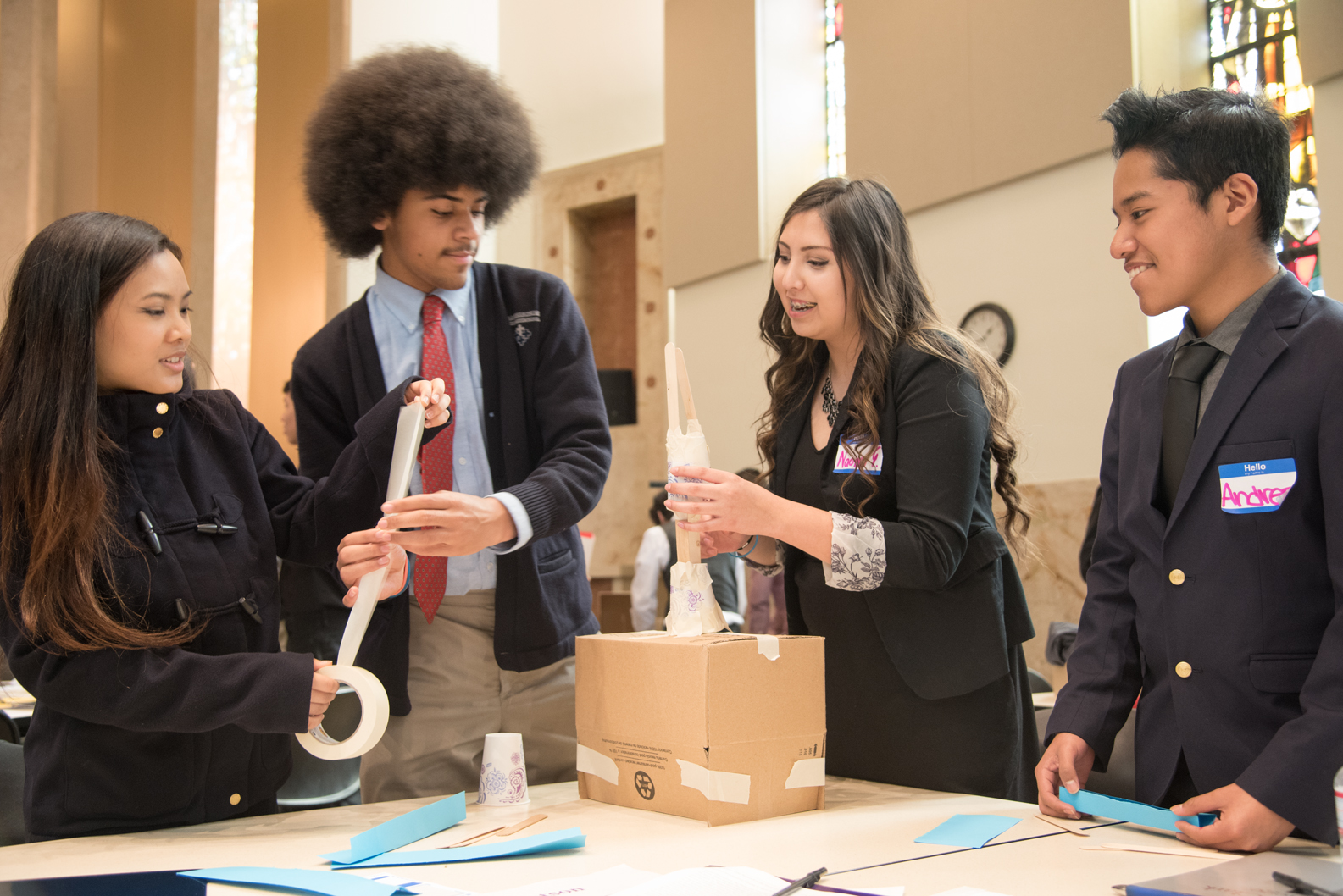
By MICHELLE GARFIAS and KATIE KELLY
A high school outreach program on campus may be at risk of losing its funding due to changes in grant requirements.
The Community Engagement and Leadership in Science (CELS), part of the Collaborative Approaches to Undergraduate Science Education 2.0 (CAUSE 2.0), loses its funding from the Howard Hughes Medical Institute grant (HHMI) and the Miller grant this year. CELS is currently looking for new sources for funding.
“It’s difficult because HHMI has called out for another call for proposals, but it’s not a grant that could pay for this, it has a totally different focus,” Liza Finkel, the HHMI Faculty Fellow, said. “The new HHMI proposal that Lewis & Clark is working on, even if we wanted it to, we couldn’t write a proposal that would cover the cost of CELS.”
CELS is an outreach program focused providing research and scientific opportunities for underrepresented students in the Portland area. They accomplish this through two different programs, CELS Academic Year and CELS Summer Research. Both programs work with the local high schools: Rosemary Anderson High School, De La Salle North Catholic High School, Beaverton Health and Science High School and North American Youth and Family Services Academy, according to Liz Stanhope, the Director of the CAUSE 2.0 program.
In CELS Academic Year Lewis & Clark undergrads visit local high schools and guide students to think, ask a question, design, and eventually execute a solution to a certain problem in their area. LC students guide the high schoolers through the scientific method.
The second program, CELS summer research program, is one in which high school students are paired with college students and work together in a LC or OHSU faculty lab. The college students lead and mentor the high schoolers.
“The strongest impacts that the program has had is on the confidence of participants at all levels,” Stanhope said in an email. “This confidence in pursuing science and math careers, including careers in education, confidence in scientific knowledge, and confidence sharing scientific knowledge with others. Confidence is an important factor in science/math persistence, so it’s great to see such success in this area.”
The HHMI grant expires this year, and there is no guarantee this program will continue to receive funding. HHMI is now looking to fund programs that are different from what CELS has to offer. One option is to find alternative sources of funding, according to Finkel, but faculty are also considering other opportunities.
“The other alternative is to institutionalize project and find way to pay for it or parts of it internally,” Finkel said. “And then we’ll be able to ask for less money from an outside agency.”
Undergraduates and high school students collaborate on projects that take up a majority of the program. One project focused on school lunches, and compared national standards with actual free and reduced school lunches. Another project looked at the racial bias of drivers. This project hired actors (who were also LC undergraduate students) to cross intersections in Portland and recorded whether a car stopped for the pedestrian or not, according to Ciarra D’Onofrio ’14, the CELS program coordinator.
D’Onofrio was also an undergraduate student participant in CELS before she graduated from LC.
“[CELS] gives students real-life teaching experience working with high schoolers,” D’Onofrio said. “I knew I was interested in teaching and our school does not offer a pre-professional teaching program. This is a way to get some experience while you are still in school.”
Subscribe to the Mossy Log Newsletter
Stay up to date with the goings-on at Lewis & Clark! Get the top stories or your favorite section delivered to your inbox whenever we release a new issue.

Leave a Reply